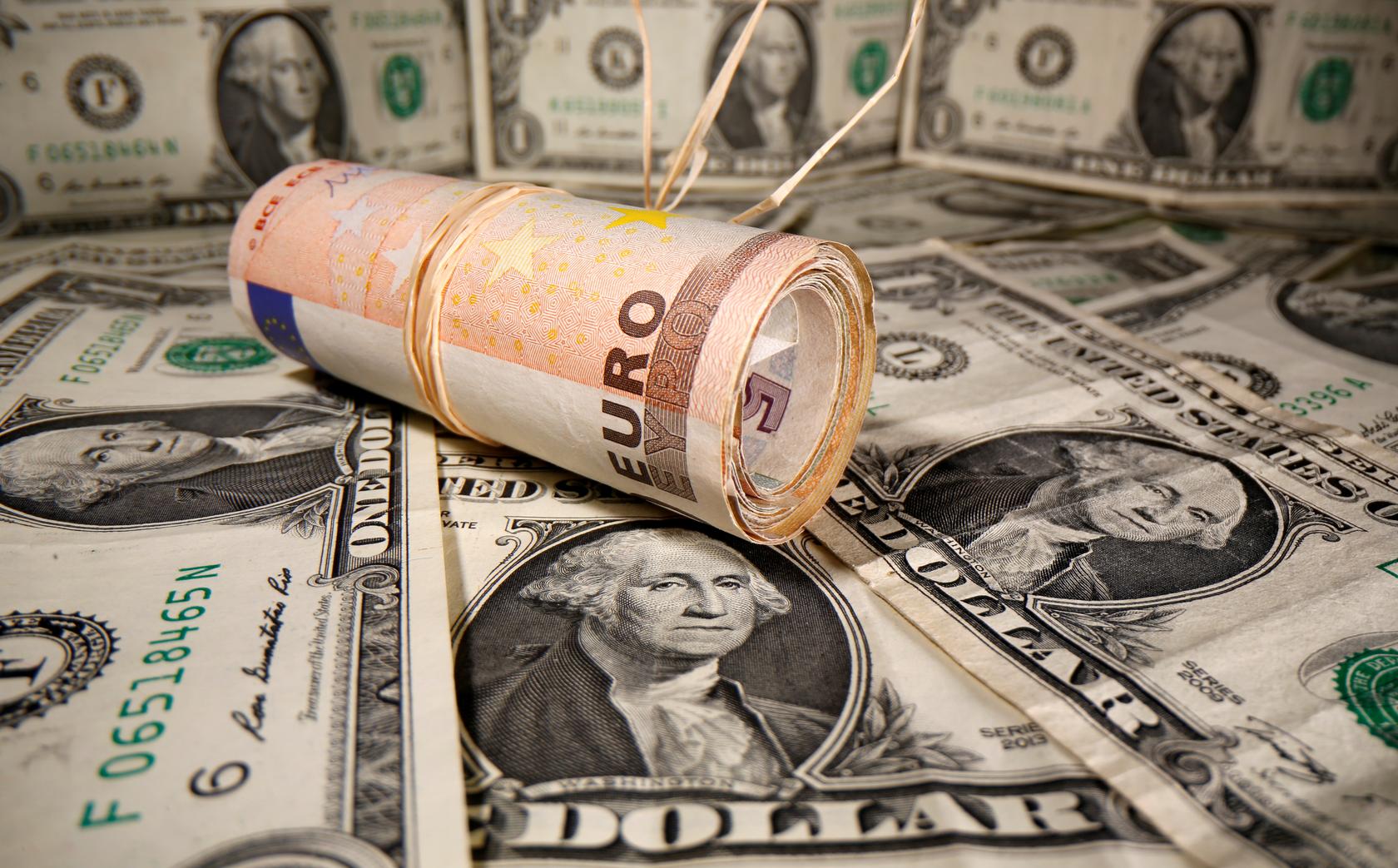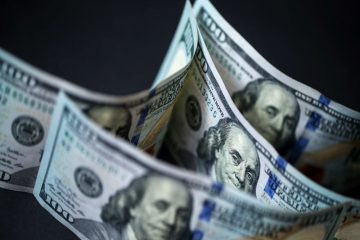Dollar falls to two-week low as benign inflation, U.S. yields weigh

The dollar dropped to two-week lows on Wednesday in choppy trading, led by losses against sterling and the euro, weighed down by U.S. data showing tepid inflation and a slippage in Treasury yields.
U.S. benchmark 10-year yields were last at 1.136%, down 2 basis points from Monday’s level. The dollar extended losses after data showed U.S. underlying inflation remained benign. Excluding the volatile food and energy components, the CPI was unchanged for a second straight month. Tame inflation data made it more likely the Federal Reserve would keep interest rates ultra-low.
“The momentum for the dollar right now has turned a little bit lower,” said Erik Nelson, macro strategist at Wells Fargo in New York.
“We’re not ready to throw in the towel on our view of a short-term bullish trend for the dollar. But our conviction on that view has lessened a bit. It seems that there has been a perceptible shift toward momentum.” The dollar index drifted to a two-week low of 90.36, and set for a third day of losses. It last traded 0.2% lower at 90.324.
Traditionally viewed as a safe-haven, the dollar has sunk against major peers as optimism over monetary and fiscal support, robust corporate earnings and coronavirus vaccines bolstered risk sentiment.
Bitcoin, meanwhile, consolidated recent gains on Wednesday, trading 3.7% lower at $44,799. It hit a new high of $48,216 on Tuesday following Tesla’s disclosure of a $1.5 billion investment in the virtual currency.
Rival virtual currency ethereum, which often moves in tandem with bitcoin, reached a record $1,839 on Wednesday before pulling back slightly. It was last down 3.8% at $1,706.
Sweden’s crown strengthened to a one-month high of 10.0406 crowns per euro ahead of the central bank’s interest rate decision, then pared some of those gains after the bank kept monetary policy unchanged as expected. Foreign exchange traders have been waging a tug-of-war over the impact on the dollar of U.S. President Joe Biden’s planned $1.9 trillion fiscal stimulus package.
On one hand, it is expected to speed a U.S. economic recovery, bolstering the currency. But on the other, it could heat up inflation which would lift riskier assets at the dollar’s expense.
After a strong start to the year for the greenback, the latter view appears to be regaining sway, with last week’s U.S. jobs data providing the turning point, according to Westpac analysts.
The dollar gained 0.1% against the yen to 104.67 yen. The Japanese currency earlier hit its highest against the greenback since Jan. 29.
The euro edged up to $1.2132, adding to a three-day gain and hitting its highest since the start of February. The British pound set fresh three-year highs of $1.3865 and was last up 0.3% at $1.3847.

